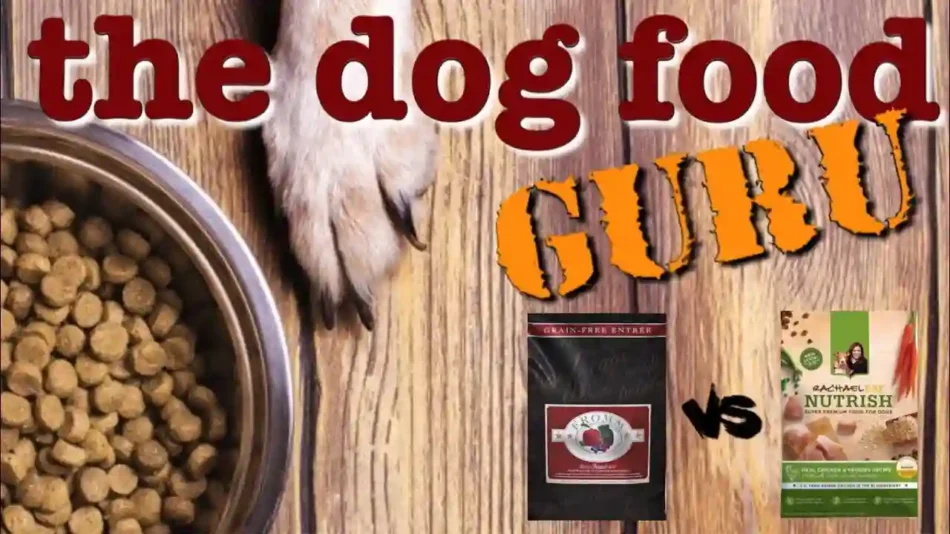Just like humans, dogs can have dietary sensitivities and allergies that impact their overall health and well-being. Gluten sensitivity is one such concern that some dogs may experience. Gluten is a protein found in grains like wheat, barley, and rye, and for certain dogs, it can lead to digestive issues and other health problems. Gluten-free dog food has emerged as a solution to address these sensitivities and provide a well-balanced diet for dogs with gluten-related concerns. In this article, we will explore gluten sensitivity in dogs, the benefits of gluten-free dog food, and considerations for pet owners looking to make the switch.
Understanding Gluten Sensitivity in Dogs:
- Symptoms of Gluten Sensitivity: Dogs with gluten sensitivity may exhibit various symptoms, including gastrointestinal issues such as diarrhea, vomiting, and abdominal discomfort. Other signs can include skin problems, lethargy, and changes in behavior. It’s essential to consult with a veterinarian if you suspect your dog may be sensitive to gluten.
- Breeds Prone to Sensitivity: While gluten sensitivity can occur in any breed, certain breeds are more prone to it. Breeds such as the Irish Setter, Border Collie, and Boxer have been reported to have a higher incidence of gluten sensitivity.
- Celiac Disease in Dogs: Celiac disease, an autoimmune condition triggered by gluten consumption, is rare in dogs. However, some dogs may still experience sensitivity or intolerance to gluten without a formal diagnosis of celiac disease.
The Role of Gluten in Dog Food:
- Common Grains Containing Gluten: Grains such as wheat, barley, and rye are common sources of gluten in dog food. These grains are often used as fillers or binders in commercial pet food to provide structure and consistency.
- Gluten as a Protein Source: While gluten is a protein, it may not be the optimal protein source for all dogs. Some dogs may have difficulty digesting gluten, leading to the aforementioned symptoms of sensitivity.
- Alternative Protein Sources: Gluten-free dog foods often rely on alternative protein sources such as chicken, beef, lamb, fish, and legumes. These protein sources can be easier for dogs to digest, especially for those with gluten sensitivity.
Benefits of Gluten-Free Dog Food:
- Digestive Health: The primary benefit of gluten-free dog food is improved digestive health for dogs with gluten sensitivity. By eliminating gluten-containing grains, the risk of gastrointestinal issues such as diarrhea and vomiting is reduced.
- Skin and Coat Health: Some dogs with gluten sensitivity may experience skin issues, including itching, redness, and inflammation. Switching to a gluten-free diet can contribute to improved skin and coat health, alleviating these symptoms.
- Reduced Allergic Reactions: Dogs with gluten sensitivity may exhibit allergic reactions, including itching, swelling, and discomfort. A gluten-free diet can reduce the likelihood of these allergic responses, leading to a more comfortable and contented dog.
- Energy and Vitality: A well-balanced, gluten-free diet can contribute to increased energy levels and overall vitality in dogs. By providing easily digestible protein sources and essential nutrients, gluten-free dog food supports the overall well-being of your furry friend.
- Weight Management: Some gluten-free dog foods are formulated with a focus on weight management. This can be beneficial for dogs with gluten sensitivity that may have experienced weight fluctuations due to digestive issues.
- Customized Nutritional Formulas: Many gluten-free dog foods come in specialized formulations to address specific health concerns. These formulas may include added supplements such as antioxidants, vitamins, and minerals to support your dog’s overall health.
Considerations for Choosing Gluten-Free Dog Food:
- Reading Ingredient Labels: When selecting gluten-free dog food, carefully read ingredient labels to ensure that gluten-containing grains are not included. Look for named protein sources, whole grains, and other nutrient-rich ingredients.
- Avoiding Cross-Contamination: Some manufacturers produce both regular and gluten-free dog food in the same facility. If your dog has severe gluten sensitivity, consider brands that prioritize avoiding cross-contamination during the manufacturing process.
- Protein Quality: Assess the quality of protein sources in gluten-free dog food. Look for high-quality, easily digestible proteins such as chicken, turkey, fish, or lamb. Avoid foods with excessive fillers or artificial additives.
- Consider Individual Needs: Every dog is unique, and their nutritional needs may vary. Consider factors such as your dog’s age, breed, weight, and activity level when choosing a gluten-free dog food. Consult with your veterinarian for personalized recommendations.
- Gradual Transition: When transitioning to a gluten-free diet, do so gradually to allow your dog’s digestive system to adjust. Abrupt changes in diet can lead to digestive upset. Monitor your dog for any signs of discomfort or adverse reactions during the transition.
- Regular Monitoring: Regularly monitor your dog’s overall health, including weight, coat condition, and behavior, after transitioning to a gluten-free diet. Positive changes may take time, so be patient and consistent in assessing your dog’s well-being.
Homemade Gluten-Free Dog Food:
- Controlled Ingredients: Some pet owners opt to prepare homemade gluten-free dog food to have greater control over the ingredients. This approach allows you to choose specific protein sources, vegetables, and grains that are easily digestible for your dog.
- Consult with a Veterinarian: Before implementing a homemade diet, consult with your veterinarian to ensure that it meets your dog’s nutritional needs. Homemade diets should be well-balanced and tailored to your dog’s individual requirements.
- Monitor Nutrient Intake: Homemade diets require careful attention to nutrient intake. Ensure that your dog receives adequate protein, essential fatty acids, vitamins, and minerals for optimal health.
- Introduce Variety: A homemade gluten-free diet can introduce variety into your dog’s meals. Include a mix of protein sources, vegetables, and grains to provide a well-rounded and nutritious diet.
Potential Drawbacks of Gluten-Free Diets:
- Nutritional Imbalance: Some commercially available gluten-free dog foods may lack certain nutrients found in grains. It’s essential to choose well-formulated gluten-free options or supplement the diet as needed to avoid nutritional imbalances.
- Limited Fiber Content: Grains are a source of dietary fiber, and gluten-free diets may have lower fiber content. Adequate fiber is crucial for digestive health, so choose gluten-free options with added sources of fiber or consider supplementing if necessary.
- Higher Cost: Specialty dog foods, including gluten-free options, can be more expensive than conventional counterparts. Pet owners should factor in the cost when choosing a gluten-free diet, balancing their budget with their dog’s health needs.
- Taste Preferences: Some dogs may have strong taste preferences, and the transition to gluten-free dog food may require patience and experimentation to find a formula that your dog enjoys.
Conclusion:
Gluten-free dog food serves as a valuable solution for dogs with gluten sensitivity, providing a well-balanced and easily digestible alternative to traditional dog food. Understanding the symptoms of gluten sensitivity, the benefits of a gluten-free diet, and considerations for choosing the right dog food are crucial steps in promoting your canine companion’s health and happiness. Whether opting for commercially available gluten-free options or preparing homemade meals, consulting with a veterinarian is essential to ensure that your dog’s nutritional needs are met. By making informed choices, pet owners can contribute to their dog’s overall well-being and create a diet that supports a vibrant and fulfilling life for their furry friends.




